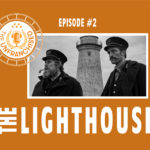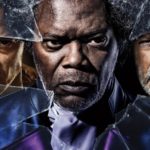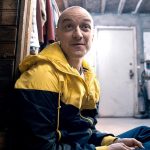

Note: There are huge spoilers toward the end of this review, but I've clearly marked where they begin and end.
I'm pretty sure we can diagnose The Witch with an acute case of festival hype, that nasty affliction where some tiny film is suddenly saddled with huge expectations because a festival audience — enthused that they're seeing something first and early — immediately takes to social media with proclamations of "this is the best thing ever!" This happens a lot with horror. See: the Evil Dead remake or any other number of not-so-great horror flicks that were lavished with praise after their first festival screening.
The Witch is certainly not great. It's okay. It's moody and atmospheric, and boasts a couple of strong performances. But it's also boring, with long stretches filled by characters praying, ominous music and … not much else. It's 90 minutes but feels much, much longer. It's not as scary as its own trailer. This is not what you expect from a horror movie that a festival audience has named "the next big thing." Do not go into this expecting the a film on par with It Follows or The Babadook. Those movies earned their hype. The Witch? Not so much.
The film is interesting on a conceptual level, at least. Set in the 1600s and subtitled "a New-England folktale," The Witch feels terribly faithful to its era, with writer/director Robert Eggers having all of his characters speak period-authentic dialogue (which gives the movie a bit of an other-worldly feel but also makes it hard to understand what people are yammering away about at times). Ralph Ineson plays William, a puritan settler who's driven out of his community for some unseen blasphemy. Believing himself to be the more righteous Christian, he packs up his wife and kids and moves them to the frontier, setting up a corn farm on a stretch of land bordering a foreboding woods.
Right off the bat though, things turn nightmarish when William's baby is stolen away while under the watch of his eldest daughter, Thomasin (Anya Taylor-Joy). They presume wolves were responsible, although the audience knows it was an honest-to-god witch, thanks to a few quick and disturbing early shots of the wild woman absconding with the baby. The family tries to move on with their lives, but the crops won't seem to grow with any consistency. William's wife, Katherine (Kate Dickie), enters a state of constant depression and paranoia. The eldest boy, Caleb (Harvey Scrimshaw) is distracted by his burgeoning manhood; he's usually either trying to prove himself to his old man or gaping at his sister's breasts. And there are also the twins, a young boy and girl who spend most of their day talking to a horned goat named Black Phillip (who they insist talks back to them). When prayer doesn't seem to reverse their fortune, the family turns on each other, focusing most of their ire on Thomasin, who Katherine suspects is practicing witchcraft. Meanwhile, real evil is out there, and its influence continues to spread.
The Witch is an easier movie to appreciate than it is to enjoy. It treats its story straight-forwardly and with respect, without feeling the need to use a bunch of cheap jump scares or plot twists to make its case. But there's just not enough dramatic meat here to fill a feature-length film. Honestly, it feels like something that would have made for a better short. (I'm convinced you could effectively tell this same story in about 15 minutes.) I also found the message to be somewhat muddled. Is it an anti-religious movie? For a while, The Witch seems intent on showing how hardline beliefs can turn a family against itself. And, for as much praying as there is in this film, it ultimately doesn't do anyone any good. But then again, there is a witch here, and on top of that …
HUGE SPOILERS IN THIS NEXT SECTION
… a very literal Satan. And, if that's the case, can you blame the family for turning to god every time things go to shit? I also feel conflicted on how to read the ending. In essence, Thomasin's family is destroyed and she turns herself over to a dark side that, among other things, murders babies. Yet I felt somewhat happy for her at the end, in that she escaped the controlling bonds of her family (who were prepared to trade her off into marriage) for a life of free will and spontaneity. It doesn't really feel like a tragedy to me. It's almost a victory. Problem with me? Problem with the movie? Or maybe …
SPOILERS END HERE
… we should take it as a positive that The Witch has us asking these questions as we leave the theater? It's certainly not a bad thing when a film (especially a horror flick) has you thinking hard about what you just saw. Still, a bit clearer mission statement wouldn't have hurt.
One thing we don't have to question are the actors. Ineson and Dickie (both Game of Thrones alums) have shed all of their modern pretenses to play two characters who live in a different, harsher world than we do today. But the real standout is Taylor-Joy, who effectively portrays a character who watches the world burn down around her as she shoulders most of the blame, even though she's only ever done what she's been told. She's quite good here, and I hope we see her popping up in lots of other places soon.
I just wish everyone had been given more to do. You can't get by on atmosphere and performances alone. You need a story. The Witch doesn't have much of a story. It's got an idea. It's got a style. But it doesn't do nearly enough with them.











